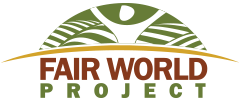The chief executive of Divine Chocolate, a company with a unique ownership structure, and the president of its largest shareholder group explain how the for-profit business operates Despite spending nearly a decade using commerce to remedy social injustice, Mark Magers never imagined he would one day work for 45,000 Ghanaian cocoa farmers. Eight months ago the serial entrepreneur took over as chief executive officer and president of Washington-based Divine Chocolate, the first chocolate brand to share with its farmers the profits generated from the beans they grow, harvest, ferment, and dry on bamboo racks in West Africa. Magers recognizes that the notion of empowerment is “easy to say and sounds good,” but says that Divine’s model is making a substantive difference in its farmers’ lives. Its largest shareholder group, Kuapa Kokoo, is one of the oldest fair trade cocoa cooperatives in the world, and its minority shareholders are mission-driven organizations, including Christian Aid and Comic Relief. Magers says the four-year-old business had $3.5 million in revenue in 2010 and expects $5 million in 2011. The seven-employee company’s 32 products—including candy bars, drinks, and mints—are made in Germany and sold in more than 3,000 U.S. retail outlets, including Whole Foods (WFM), Wegmans, and Fred Meyer (KR). In Ghana, where the United Nations estimated gross national income per capita around $700 in 2008, the cocoa farmers of the Kuapa Kokoo cooperative receive precious dividends from Divine Chocolate’s profits, says Christiana Ohene Agyare, the coop’s first woman president. Kuapa Kokoo dedicates 2 percent of gross sales to fund the cooperative’s training and elections, with members voting on how to use the rest for their collective good. Magers and Agyare were in New York last week for the company’s shareholders’ meeting. They spoke separately with Smart Answers columnist Karen E. Klein. (Agyare was interviewed separately in her native Twi language through translator Kwesi Adesse Poku.) Edited excerpts of their conversations follow. Karen E. Klein: How did you get involved in fair trade and the cocoa industry? Magers: I started up a couple of coffee companies and then I was in sales and marketing for Kauai Coffee. I got into fair trade and social justice when I was working in the coffee business and came across the concepts at a trade show. I was hired as a consultant to write a go-to-market plan for Divine Chocolate and then worked as vice-president of sales before I became CEO eight months ago. Were you attracted to the idea of fair trade immediately? Magers: I was skeptically optimistic at first. But after almost 10 years working in the fair trade arena, I can say that farmer ownership truly makes a difference in the point of view of the farmers who grow this cocoa. Christiana, how does having the co-op change the lives of the cocoa farmers? Agyare: Our life has been changed simply because we get premium money. We get the guaranteed fair trade price of $2,000 per ton and a $200 per ton premium over that. This means we can send our children to school, we get clean water, we give new sharp machetes to all the members. Before, we were [dependent on] the buying agent who turned up and told us what he would pay. Now we have our own organization that we control. Also, we can share our problems with other people and solve them collectively. We hired a mobile medical clinic that once a year goes around to every village to give our members checkups and refer them to hospital. Normally the doctors are far away, and terrain is very difficult to get through on bad roads. Are there other farmer-owned chocolate companies and if not, why not? Agyare: We are the only chocolate company owned by a cooperative of farmers. Kuapa Kokoo is the only cooperative for cocoa farmers in Ghana. It’s not easy to start. Our farmers live in 1,300 villages, so you have to set up a large organization and capitalize the supply chain. There are other farmer cooperatives in countries like Ivory Coast, Sierra Leone, Cameroon. None of them are as big or as successful as Kuapa Kokoo. Is this your first visit to the United States? Agyare: Yes. I went to see [former U.S.] President [Jimmy] Carter. He’s a farmer, too. He was interested in our business model. I also went to some women’s groups to talk to them and promote the chocolate. I tell them this will empower women, so buy more premium chocolate. You were first elected to Kuapa Kokoo’s leadership in 1996 and you’ll be president through 2014. What do the men think about having a woman president? Agyare: They elected me. I must be very popular. Mark, how do you market Divine Chocolate’s products? Magers: We do a lot of events where we know our people will be. We connect on social media with people who are passionate about farmer-ownership. We recently sponsored an international film festival in San Francisco, for instance, and we put on chocolate salons and have booths at green festivals. We have appeared at African film festivals and we go to women’s empowerment seminars. You want to make the brand popular—not just based on its fair trade credentials, but on its quality as well, right? Magers: Guilt is not a good business model. People might try something once or even twice if they have an affinity to your cause, but we’re not hitting people over the head with our morality. We want people to engage with the brand and like the product. We’re not a charity, we’re a for-profit business differentiated because we’re owned by cocoa farmers and fair trade certified. But we also have unique packaging and flavors. White chocolate with freeze-dried strawberries is one of our most popular products. How often do you travel to Ghana? Magers: I have been there a couple of times. Every time I go, the first question everyone asks me is: How are the sales? Having a guaranteed fair trade price, premium payments, and a share in profits is transformative for the co-op members. They are especially tickled that they have “obruni”—what they call white people—with MBAs from the Ivy League working for them. What does Kuapa Kokoo mean? Agyare: In Twi it means Good Cocoa Farmers Company. Our motto is PaPa Paa, which means the best of the best. Karen E. Klein is a Los Angeles-based writer who covers entrepreneurship and small-business issues. http://www.businessweek.com/print/smallbiz/content/may2011/sb20110517_924879.htm | 
